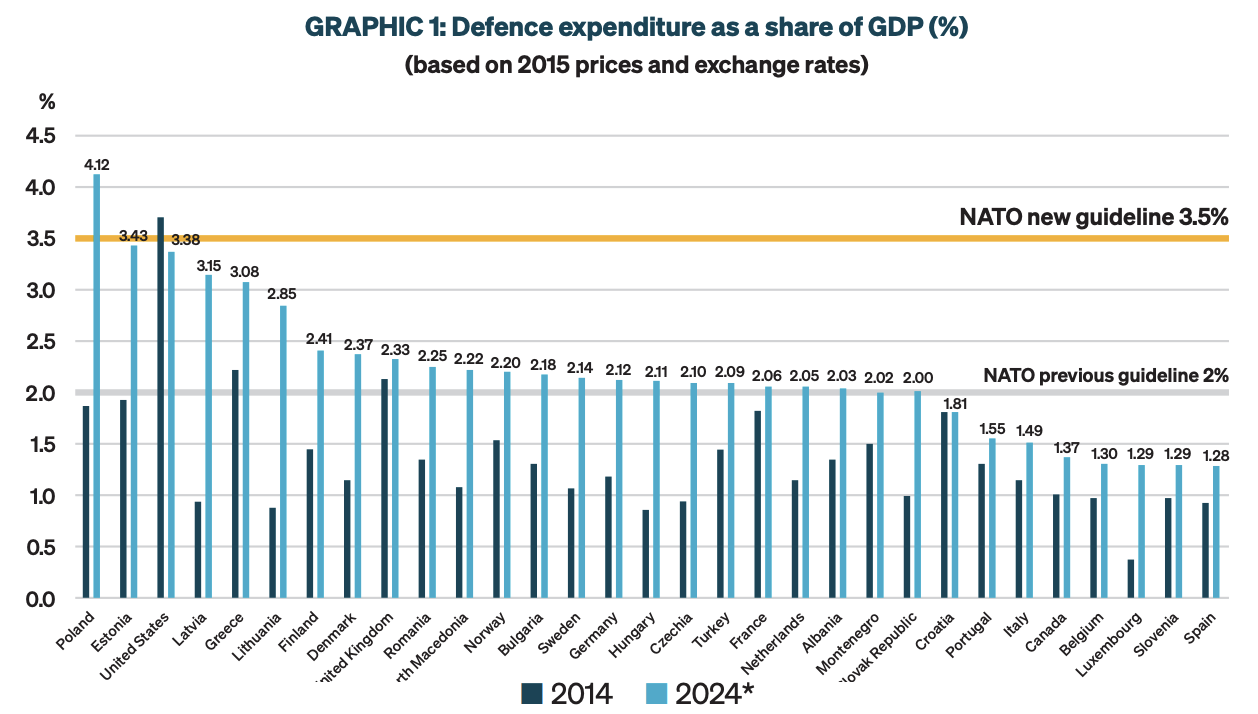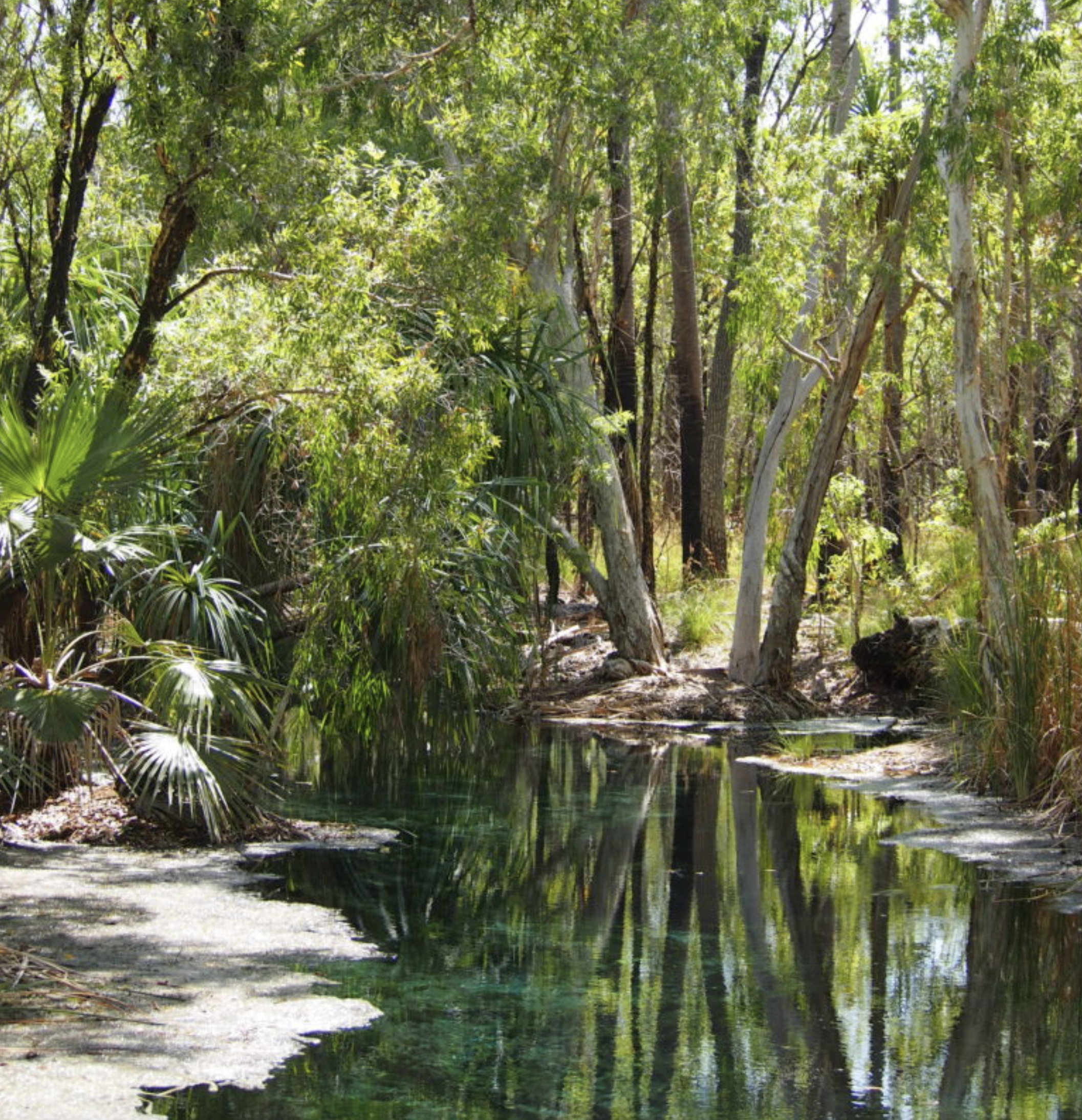Environment: Ken Henry and Xi Jinping agree nature is critical to productivity
July 6, 2025
Ken Henry says high-integrity environmental laws will be the government’s first test but new Labor MPs don’t agree. Great Barrier Reef still suffering from heat, agricultural run-off and overfishing. NATO to increase its spend and its emissions.
Ken Henry: Nature is critical to productivity
When Ken Henry writes it, I read it. His recent piece in the Sydney Morning Herald, Environmental law reforms are critical to productivity, lived up to my high expectations.
Henry’s basic thesis is that environmental protection and job creation are not mutually exclusive and that strong environmental laws are critical to improving Australia’s flagging productivity. What he says is so logical and forceful that I am going to quote him at length:
“The activities responsible for the industrial transformation of the Australian continent and its surrounding marine environment, the extinction of more than 100 species and the loss of more than half the continent’s forests, don’t provide a lot of jobs. Taken together, mining, forestry, fishing and agriculture employ less than 5% of the workforce. Downstream processing of raw materials extracted from nature would involve many more jobs, but Australia has ceded comparative advantage in these activities to other countries. Today, we import engineered wood products for residential construction whilst subsidising the logging of native forests to export wood chips and pulp.
_"_The continued viability of agriculture, forestry and fishing now depends upon repairing the environment, not continuing to destroy what is left.
_"_Yet there is a real economic contest in environmental policy that must be tackled. It’s not about jobs. And it’s not about ‘balancing’ economic, social and environmental outcomes.
“It’s about understanding our critical dependence upon the state of nature. It’s about ensuring that [policy] decisions respect the laws of nature. That’s where we source fresh water, clean air, arable soils, waste disposal services, and protection from violent climatic events such as floods, fires and windstorms. Environmental constraints are immutable. Breach too many of them and humanity ceases to exist.
“Policymakers must ensure that all the decisions taken by business respect these constraints. That means strong environmental protection laws. The Parliament’s first test will be the delivery of high-integrity environmental laws.”
I’m sure Mr Henry would appreciate the congruity of his thoughts with those of Xi Jinping who said, “the rise or fall of a society is dependent on its relationship with nature [and] eco-environmental protection means preserving and developing productive forces”.
Henry’s input was central to the Rudd Government navigating the Global Financial Crisis relatively successfully. Maybe the Albanese Government should seek his assistance with responding to the Great Environmental Crises.
Labor’s sinister joke
On 28 June, The Saturday Paper reported that Labor’s (and Albanese’s) Left faction in the national parliament is now larger than the Right, 62-59. The paper invited all 29 new ALP caucus members (many of whom are no doubt grateful to Albanese personally for their place on the benches) to complete a short survey about their background and the issues they would like to champion during the current term of parliament. They received 18 replies.
One new Labor parliamentarian mentioned “climate change” and one mentioned “renewable energy projects in NW Tasmania and better outcomes for the environment and climate”. That was it, just two of the 18 fresh faces see the environment and climate as a priority for the next three years. Labor still believes that being better than the other mob is enough. Not for some of us it’s not.
In the same day’s Sydney Morning Herald, ALP royalty Bill Kelty opines that the Left’s ideological force within Labor no longer makes sense: “It’s best to concede the truth. [The Left] doesn’t exist for public policy purposes. It exists for allocating seats and getting representation. It’s a delusion to think they exist at all.” Very sad. Labor abandoned any pretence of socialism decades ago. Now a highly respected insider admits that they can’t even claim to have any left-leaning aspirations.
Great Barrier Reef still suffering from the heat
Humans might like to take a dip in the ocean to cool off, but the water is distinctly too warm for the comfort of coral reefs.
The image below shows the same patch of coral off Lizard Island at the northerly end of the Great Barrier Reef (GBR) in 2024. The left image is from March and the right image is three months later following an ocean heatwave that caused coral bleaching and then death of most of the coral. If you go to the link, you can move the slider right and left.

Warmer water caused by global warming is the major threat to coral reefs all around the world, but climate change also causes more frequent high-intensity tropical cyclones that also damage coral reefs, particularly when the interval between successive cyclones is short. Australia is a disgracefully large contributor to climate change and could do much to reduce the emissions we cause but, in fairness, action on climate change needs whole-hearted international co-operation and action.
There are, however, two significant threats to the Great Barrier Reef that are entirely within Australia’s control. First, poor water quality caused by sediments, nutrients such as phosphorus and nitrogen, pesticides and pollution flowing into the ocean. Second, unsustainable fishing practices such as commercial fishing vessels catching more than they are permitted and nets that capture and kill other marine life such as dolphins, dugongs and turtles as well as fish species that have little commercial value and are thrown away.
UNESCO continues to monitor the health of the GBR and urges the Australian and Queensland Governments to do more to protect it if they want the Reef’s World Heritage status to be maintained. Tackling water quality and fishing are relatively easy wins.
Spending 5% of GDP on the military means more global warming and more inequality
I will say one thing for the recent NATO end of Summit statement, it’s mercifully brief and clear – one page, 400 words. Not like the 30 or more pages of evasion, obfuscation, compromises and qualifications that characterise the communiqués at the end of a COP meeting. The NATO heads of government don’t mince their words:
“United in the face of profound security threats and challenges, in particular the long-term threat posed by Russia to Euro-Atlantic security and the persistent threat of terrorism, Allies commit to invest 5% of GDP annually on core defence requirements as well as defence-and security-related spending by 2035 to ensure our individual and collective obligations.”
In 2014, only three NATO nations spent more than 2% of their GDP on (so-called) defence: US at about 3.7% and Greece and UK at just over 2%. The average was just over 1%. By 2024, three-quarters of nations were spending over 2%.

Note: this figure was produced before the 5% target was agreed.
Now, NATO is looking to increase every NATO country to 5% by 2035, which will more than double the current allocation to over US$3 trillion per year. NATO’S justification for 5% is that it is needed to confront Russia and terrorism. If Russia spent all of its GDP (about US$2 trillion) on its miliary, it would still be less than the NATO’s 5%.
Of course, the more money the military has, the more hardware, technology and munitions they buy; the more war games and real wars they fight or support; the more fossil fuels they burn; and the more greenhouse gas emissions they produce. With funding at 5% of GDP per year compared with the current allocations, NATO’s greenhouse gas emissions are projected to increase from about 270 to 440 MtCO2e per year. Making matters worse, the military’s emissions are mostly left out of the emissions that nations count, monitor and report, so they are contributing to global warming, but mostly not part of countries’ reduction actions or targets.
Even at current levels of military expenditure, over the last decade wealthy nations have spent 52 times as much on the military as on climate finance. The US$3 trillion per year that will be allocated to NATO-related activities is money that will not be going to overseas aid, the climate finance needs of developing countries, or funding member countries’ own energy transition or childcare, education, health and social security services. The big winners, of course, are the existing winners – arms companies such as Lockheed, Boeing, BAE Systems and Northrop Grumman who love a good war, any war.
There can be only one explanation for a bunch of the wealthiest, most socially, industrially and technologically advanced countries in the world spending a 20th of their national economy on military matters: they are determined to protect, possibly expand, their existing power, privilege and comfortable, affluent lifestyles and do everything they can to stop the rest of the world challenging their power and privilege.
Mataranka Springs water extraction plans
Mataranka Springs are at the headwaters of the free-flowing Roper River in the Northern Territory. The river and the springs are fed by the Tindall Limestone Aquifer. The NT Government’s Mataranka Water Allocation Plan allows up to 62,000 megalitres of water to be extracted each year for irrigation for cotton, hay, melons and mangoes, but only 30 megalitres has been allocated to the environment. I thought that maybe that was a misprint and should have read 30,000 megalitres, so I checked. But no, it’s just 30 megalitres – a ratio of 2000 to 1.
Farmers’ groups have described the water allocation plan as “incredibly environmentally-friendly” but I’m pleased to report that the Environment Centre NT has launched legal action against it. Surprise, surprise, the farmers have called the legal action “completely irresponsible” and “economic saboteurism” (I assume they mean sabotage).

The views expressed in this article may or may not reflect those of Pearls and Irritations.


